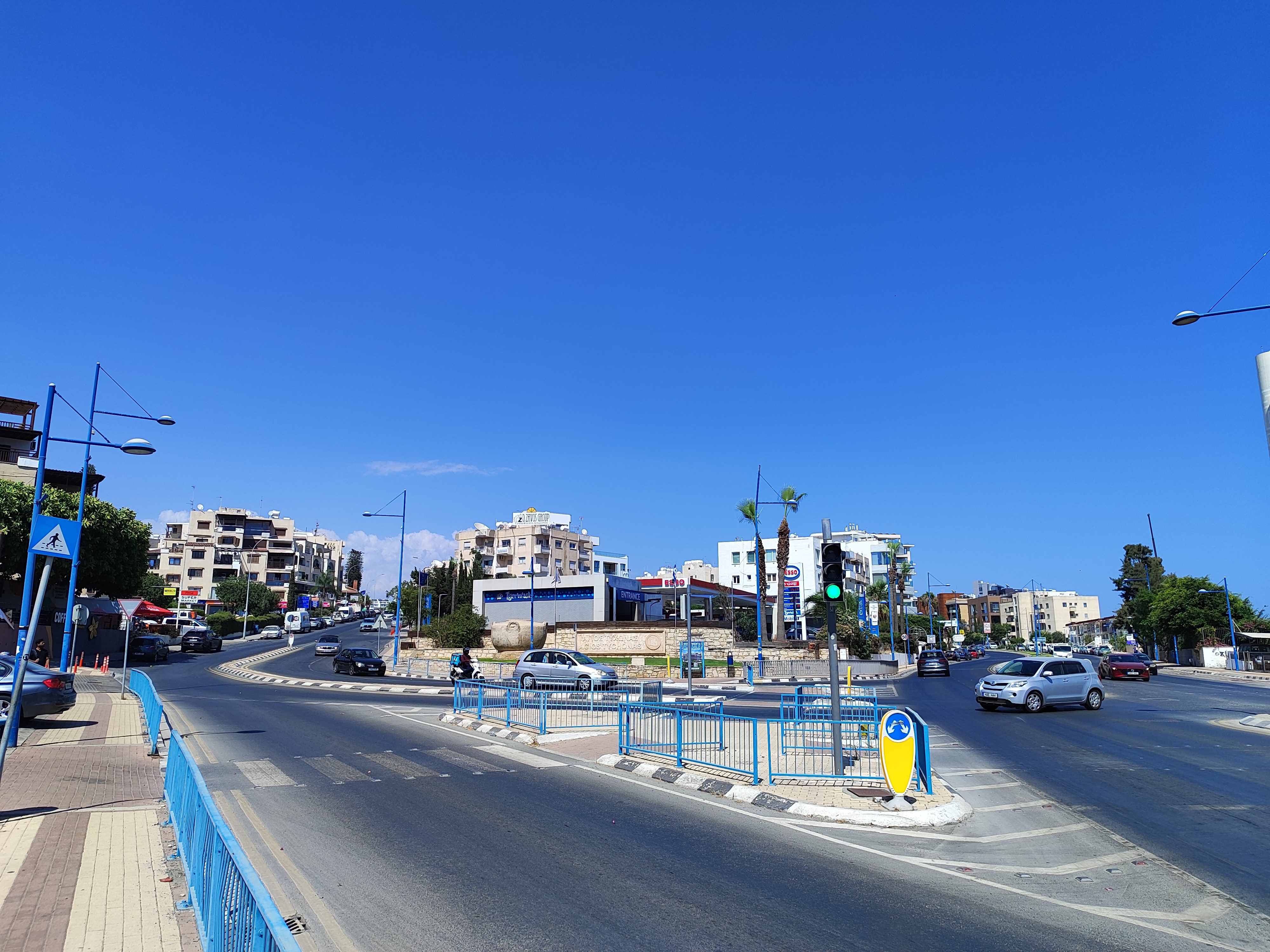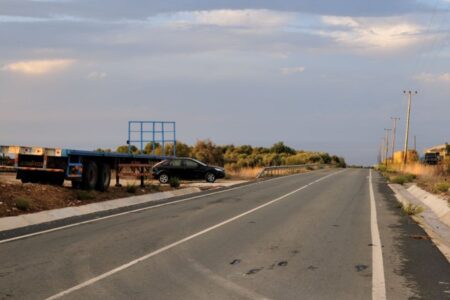Driving in Cyprus offers a distinctive experience that can either enhance your trip or become a source of stress if you’re not prepared. The island combines European traffic standards with characteristics of its British colonial heritage. Understanding local rules, traditions, and nuances is essential for safe and comfortable travel.
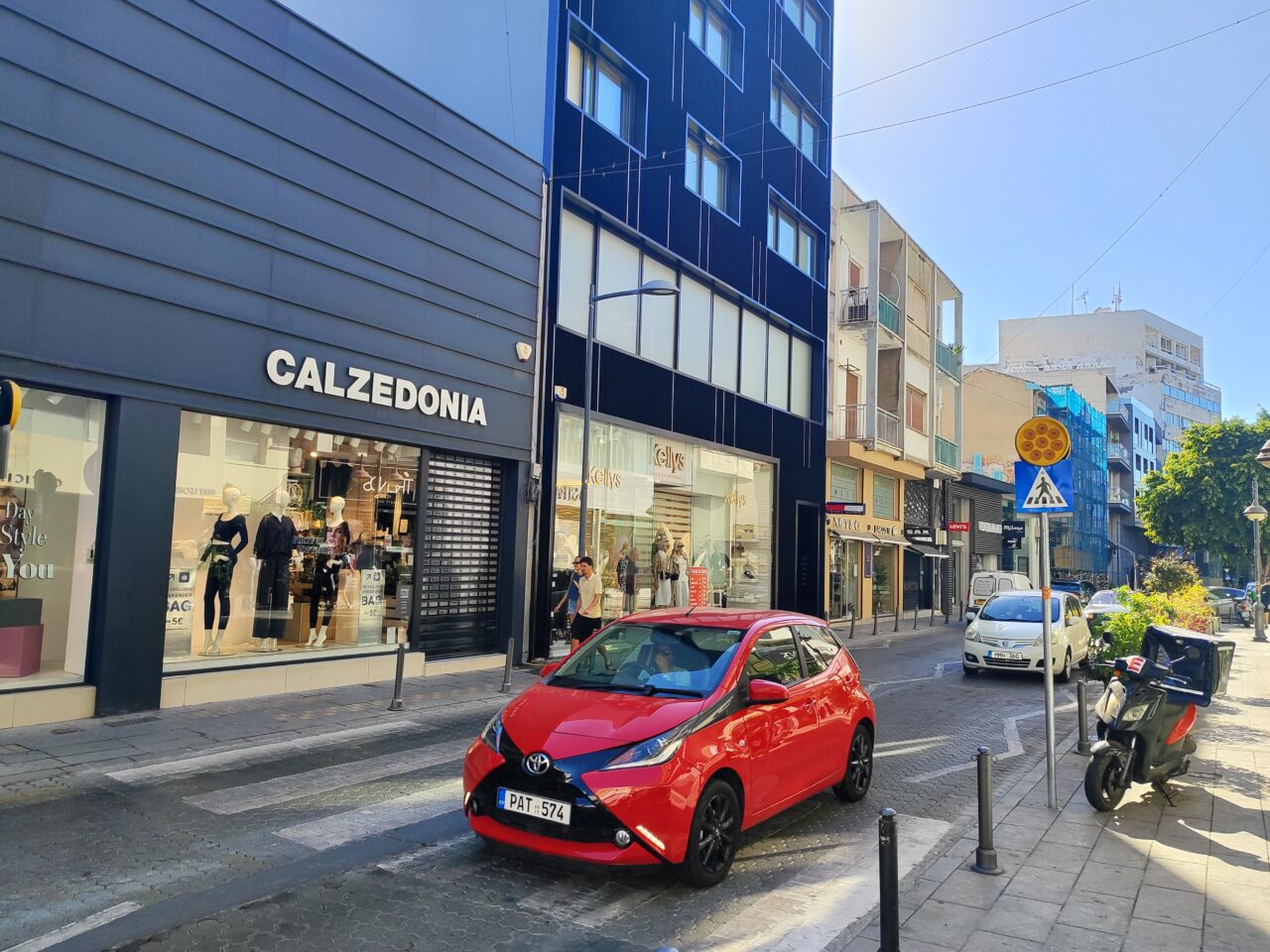
Contents
- 1 Left-Hand Traffic and Right-Hand Drive
- 2 Speed Limits: Rules to Follow
- 3 Fines and Penalties: Serious Consequences
- 4 Roundabouts: The Art of Navigation
- 5 Parking: Rules and Restrictions
- 6 Driving in Cyprus: Key Points to Consider
- 7 Car Rental: How to Make the Right Choice
- 8 Tips for Safe and Comfortable Driving
Left-Hand Traffic and Right-Hand Drive
The first thing you’ll notice when driving in Cyprus is the left-hand traffic. This legacy of British influence remains in place even after the island gained independence. Cars are equipped with right-hand drive, which can be challenging for drivers from right-hand traffic countries.
To ease the transition, it’s recommended to familiarize yourself with driving a right-hand vehicle in advance. Spend a few minutes behind the wheel in a parking lot or quiet area before hitting the road. Using an automatic transmission car can also help, allowing you to focus on road conditions rather than shifting gears.
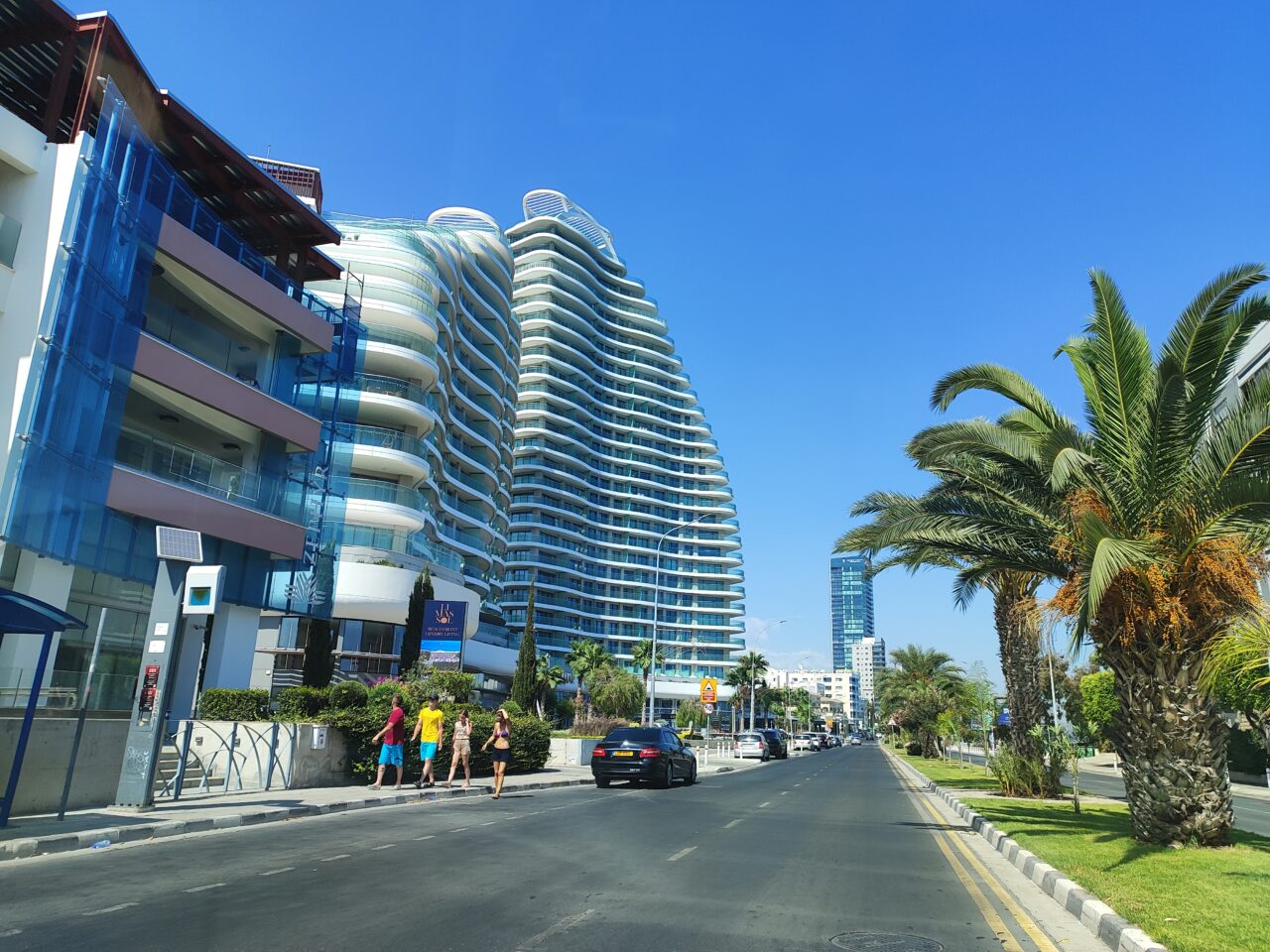
Additionally, remember that overtaking in Cyprus is done on the right, not the left. Pay extra attention at turns to avoid crossing into oncoming traffic. Navigating intersections can also be confusing, so it’s crucial to carefully follow road signs and markings.
Speed Limits: Rules to Follow
Adhering to speed limits in Cyprus not only ensures safety but also helps avoid hefty fines. The island enforces strict speed regulations that must be followed.
Urban areas: The maximum speed is 50 km/h due to the high density of pedestrians, cyclists, narrow streets, and limited visibility.
Rural roads: Outside towns and villages, the speed limit increases to 80 km/h, allowing for faster travel between settlements. However, caution is still necessary.
Highways: Connecting Cyprus’s major cities, highways have a speed limit of 100 km/h. These roads typically have two lanes in each direction with barriers, offering safer conditions for higher speeds. However, exceeding this limit can have severe consequences.
Speed cameras, both stationary and mobile, are common on Cyprus roads. Relying on the assumption that violations will go unnoticed is risky. Additionally, police patrols frequently conduct checks to identify speed limit violators.
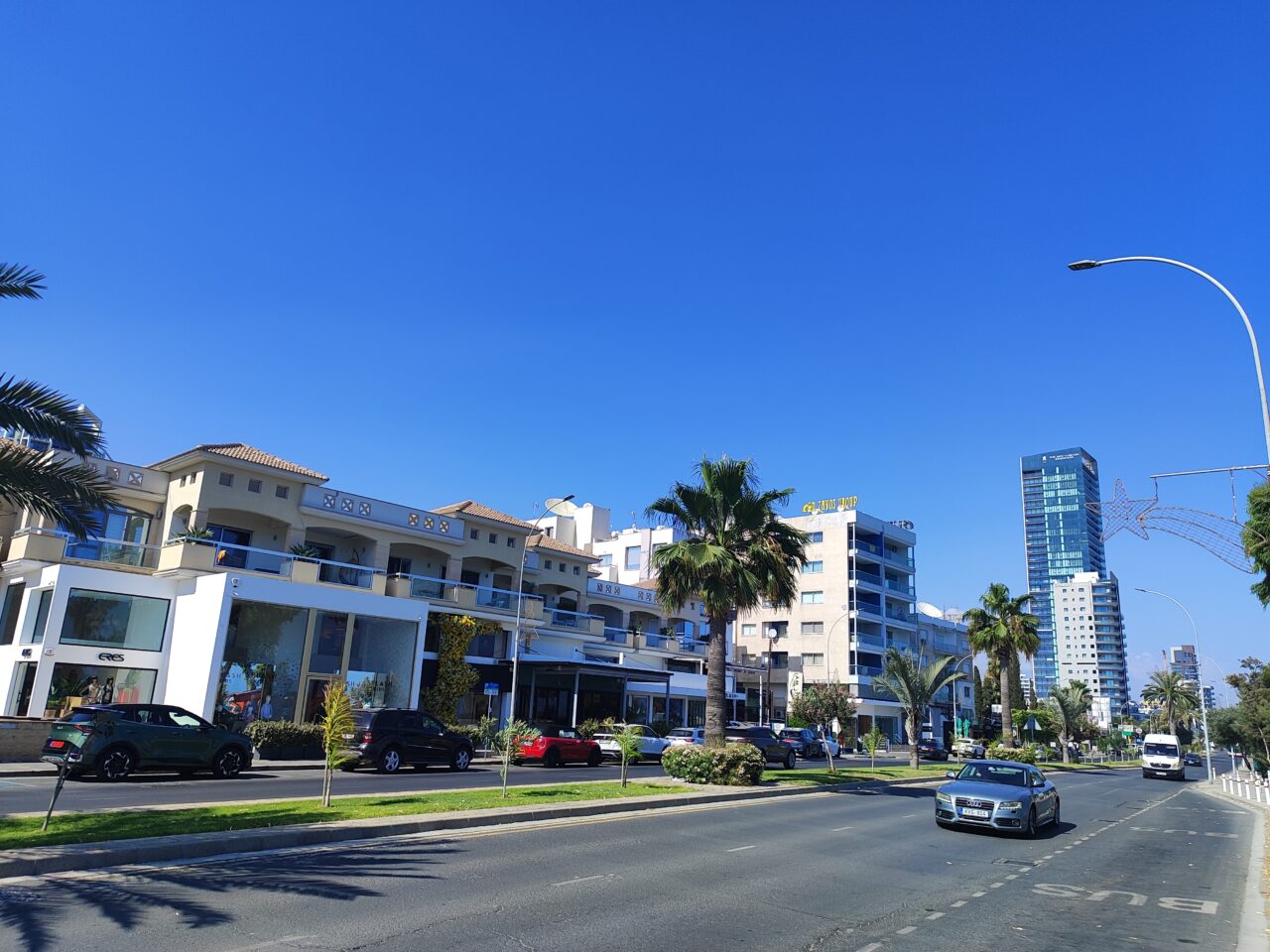
Fines and Penalties: Serious Consequences
Since October 1, 2020, Cyprus has implemented stricter measures for traffic violations in response to increasing road accidents and a governmental push for improved safety.
Running a red light results in a fine of €300 and three penalty points, aiming to reduce accidents at intersections, which are among the most hazardous road areas.
Not wearing a seatbelt is another major violation. A first offense carries a fine of €150 and three penalty points. Repeated offenses result in fines of €300, emphasizing the importance of seatbelt use for all passengers, regardless of seating position.
Using a mobile phone without hands-free capabilities incurs a €150 fine. This aims to deter drivers from distractions that significantly increase accident risks.
Driving under the influence is one of the most severe violations. The legal blood alcohol limit is 0.22‰, much lower than in many countries. Exceeding this limit can result in fines starting at €200, license suspension, and even imprisonment for serious offenses.
The penalty point system in Cyprus is designed to promote responsibility. Accumulating a certain number of points can lead to temporary loss of driving privileges, encouraging drivers to strictly follow traffic rules.
Roundabouts are an integral part of Cyprus’s road infrastructure. They help regulate traffic at complex intersections and reduce the likelihood of serious accidents. However, for those unfamiliar with them, roundabouts can pose certain challenges.
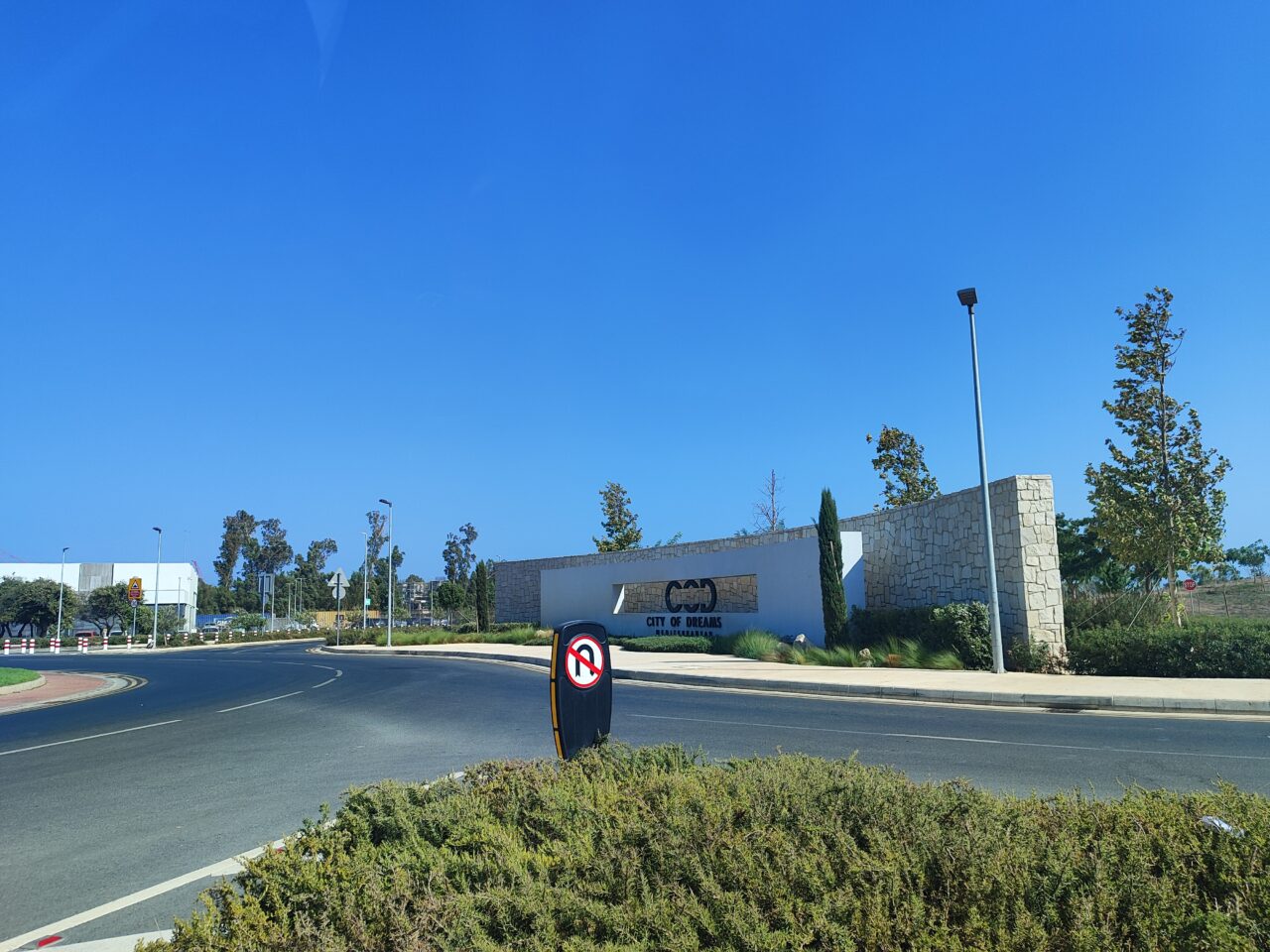
When approaching a roundabout, you must reduce speed and give way to vehicles already circulating within it, regardless of which entrance you’re using. Entering the roundabout should be done smoothly, avoiding sudden maneuvers.
If the roundabout has multiple lanes, it’s important to choose the correct lane in advance. Typically, the left lane is for those exiting at the first or second exit, while the right lane is for further exits or continuing around the roundabout. Using turn signals in a timely manner helps other drivers understand your intentions and avoid misunderstandings.
While navigating the roundabout, stick to your chosen lane and avoid unnecessary lane changes. Before exiting, merge into the appropriate lane and activate your turn signal well in advance. This ensures smooth and safe movement for all road users.
Parking: Rules and Restrictions
Parking in Cyprus can be a real challenge, especially in tourist areas and major cities. Failure to follow parking regulations may result in hefty fines or even vehicle towing.
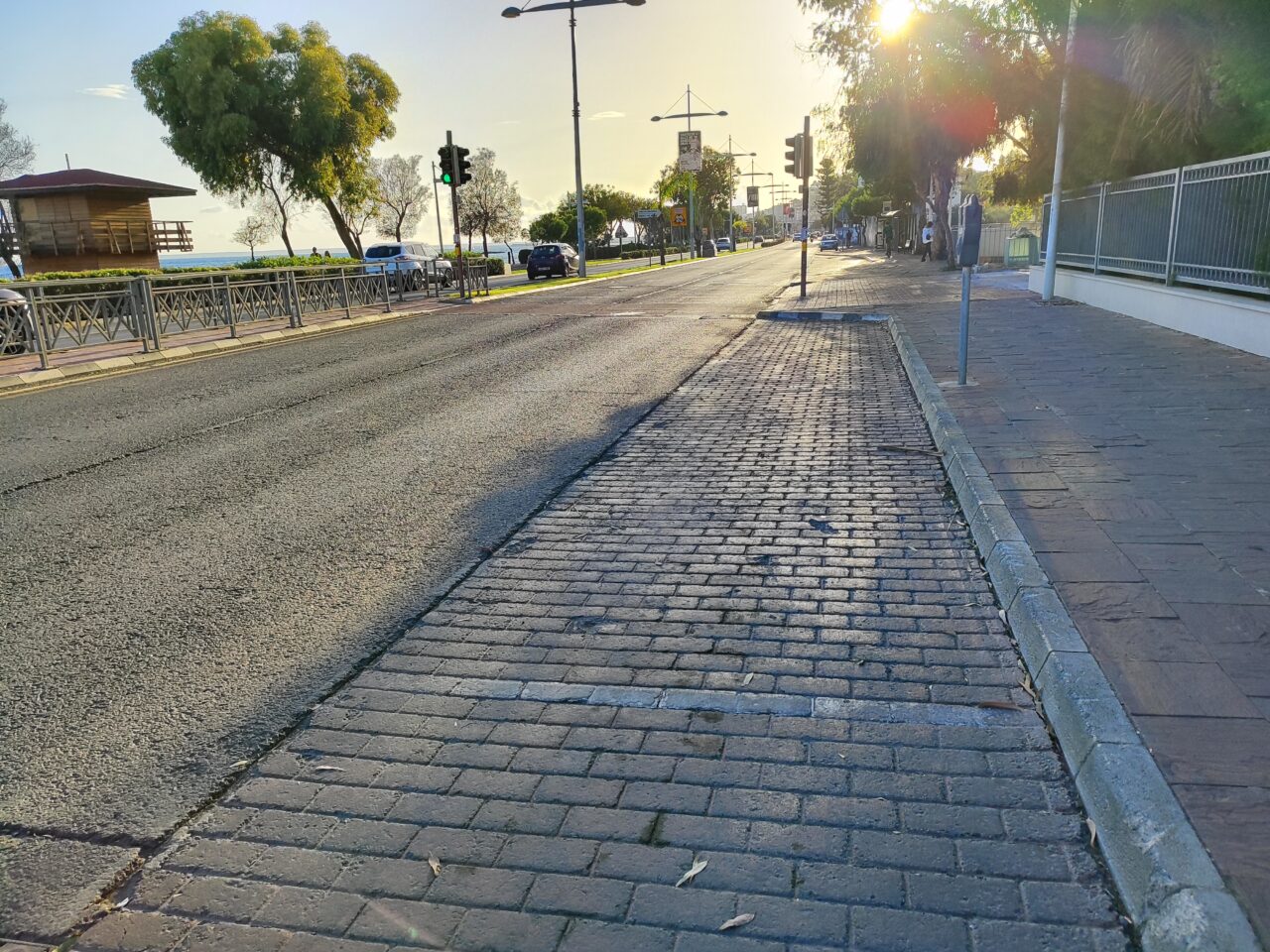
Parking in prohibited areas incurs a €100 fine. This includes parking on sidewalks, in zones marked “No Parking,” or in locations that obstruct traffic or pedestrian movement.
Parking near pedestrian crossings, bus stops, or emergency service zones is considered a more serious violation and carries a €150 fine. These areas are usually marked with signs or road markings, so paying attention is crucial.
The most severe offense is parking in spaces designated for disabled individuals. The fine for this violation is €300. Such spots are clearly marked, and using them without proper authorization is highly unacceptable.
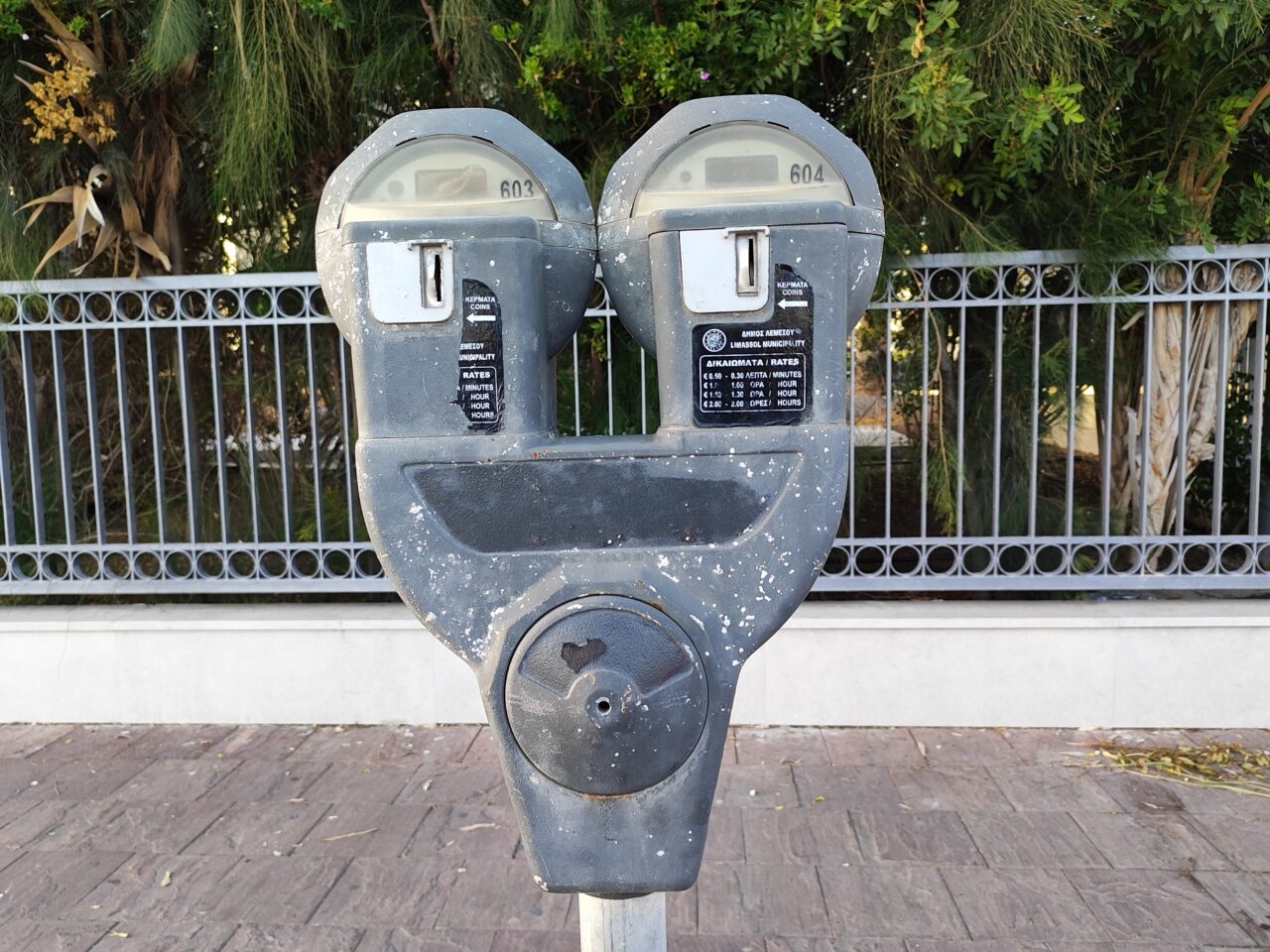
Many cities in Cyprus operate paid parking zones. Payment can be made via parking meters or dedicated mobile apps. Failing to pay or exceeding the paid time limit can also result in fines.
Driving in Cyprus: Key Points to Consider
Beyond general traffic rules, Cyprus has several unique features that drivers should be aware of.
Mobile Device Usage
As mentioned earlier, using mobile phones without a hands-free system is strictly prohibited. Even a short call or checking messages can lead to fines. Drivers are encouraged to use headsets or built-in car systems for communication.
Seatbelts and Passenger Safety
Seatbelts are mandatory for all passengers, including those seated in the back. This rule aims to reduce injuries during accidents. Additionally, children under 12 years old or shorter than 150 cm must use appropriate child seats or boosters. Non-compliance can result in fines and increases the risk of severe injuries in case of an accident.
Pedestrians and Cyclists
Pedestrians and cyclists are common on Cyprus roads, particularly in tourist areas and rural regions. Drivers should be prepared for pedestrians unexpectedly stepping onto the road or cyclists making unpredictable maneuvers. Maintaining a safe distance and reducing speed near pedestrian crossings is mandatory.
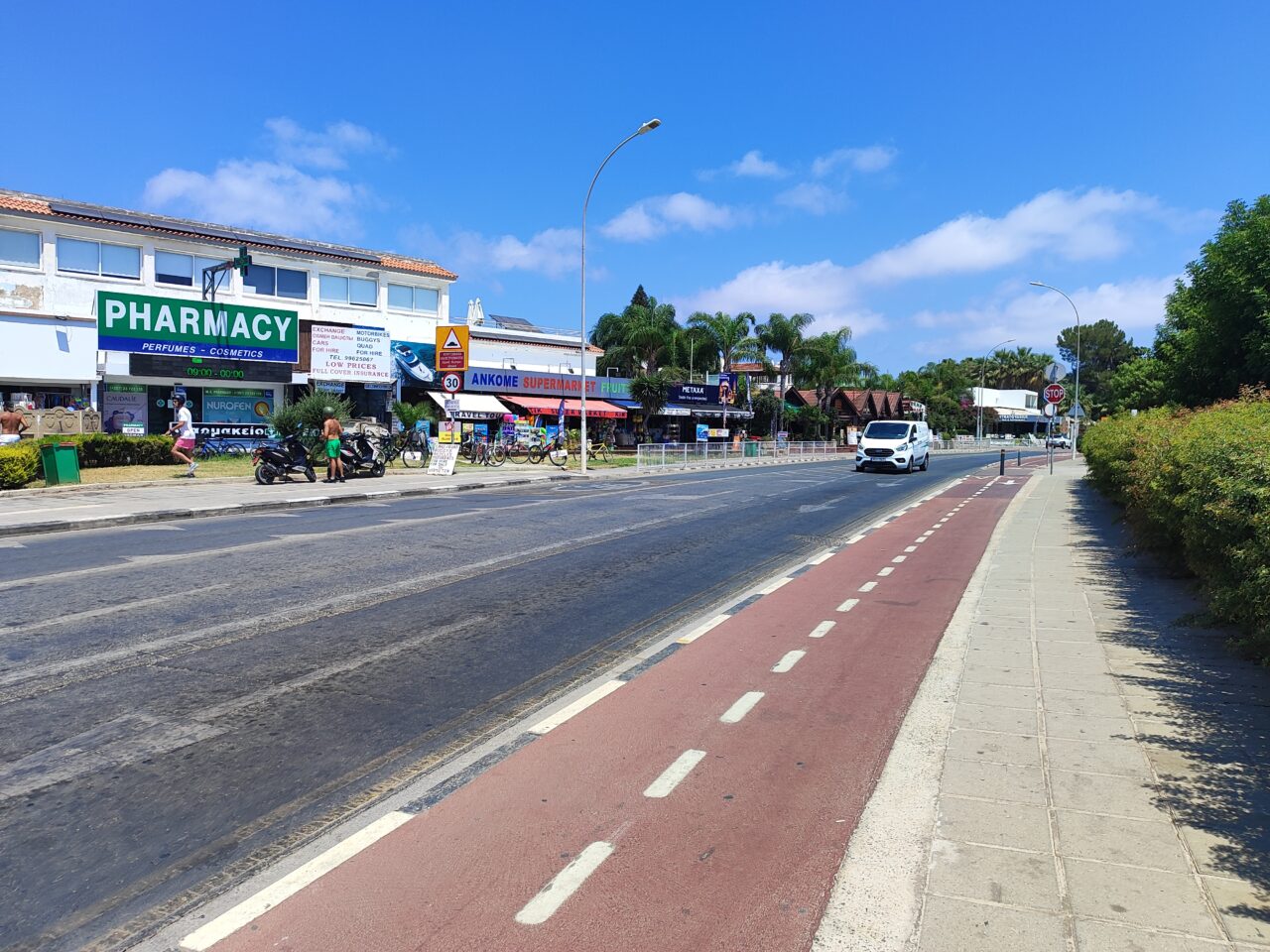
Animals on the Road
In rural areas, domestic and wild animals frequently appear on roads. You may encounter sheep, goats, or even donkeys. In such cases, it’s advisable to slow down and, if necessary, stop to let the animals pass.
Car Rental: How to Make the Right Choice
Renting a car in Cyprus is a popular option for tourists who wish to explore the island independently. However, there are several important factors to consider when selecting a vehicle and signing a rental agreement.
To rent a car, you need a valid driver’s license. Most companies accept national licenses, but some may require an International Driving Permit (IDP). The minimum age for drivers is typically 21 years, and you must have at least one year of driving experience.
It’s recommended to choose a car with an automatic transmission, especially if you are not accustomed to driving on the left side of the road. This will help you focus on the road and reduce stress.
Before signing the rental agreement, carefully read its terms and conditions. Pay special attention to sections related to insurance, deductibles, and additional charges. Some companies may offer basic insurance with a high deductible, so it might be worth considering full coverage with no deductible.
Inspect the car for any damage before driving off and ensure that all existing issues are documented in the rental agreement. This will help avoid potential disputes when returning the vehicle.
Check the usage rules in advance, including mileage restrictions, permission for cross-border travel, and fuel policies.
Tips for Safe and Comfortable Driving
To ensure a trouble-free journey in Cyprus, follow these simple recommendations.
Plan Your Route Ahead
Before setting off, study your route and identify key stops. Using a GPS or navigation app can help you navigate unfamiliar roads and avoid unexpected turns or complex intersections.
Maintain a Safe Distance
Traffic conditions in Cyprus can be unpredictable, particularly in urban areas. Keeping a safe distance from the vehicle ahead will give you time to react to sudden maneuvers.
Be Cautious at Night
Road lighting in some areas may be insufficient. When driving after dark, reduce your speed and stay alert for pedestrians and animals on the road.
Avoid Driving While Tired
The hot climate and long drives can cause fatigue. If you feel tired, take a break and rest. This will improve your concentration and reduce the risk of mistakes.
Respect Local Customs and Traditions
Cypriots are known for their calm and friendly nature. Aggressive driving behavior is not appreciated. Respecting other road users will make your journey more enjoyable.
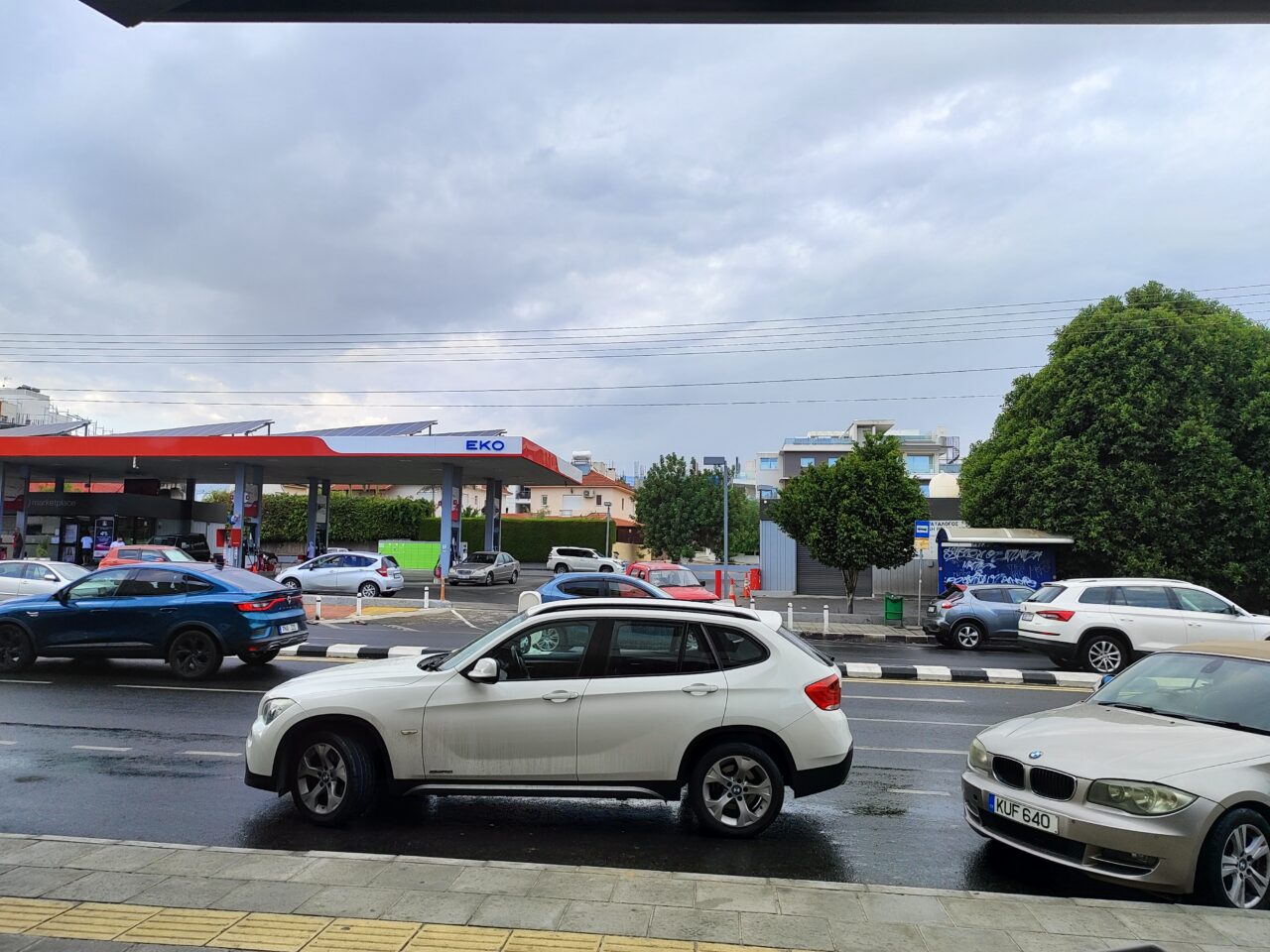
Driving in Cyprus is a fantastic way to visit many amazing places that are inaccessible by public transport. Understanding and following local traffic rules, combined with attentiveness and respect for others, will ensure a safe and memorable trip.
While left-hand traffic and right-hand drive may seem daunting at first, practice and caution will help you quickly adapt to the new conditions. Adhering to speed limits, parking regulations, and other rules will help you avoid fines and unpleasant situations.
Remember, safety is the priority in any journey. By following these tips and recommendations, you’ll be able to enjoy the beauty of Cyprus and make the most of your independent travels around this stunning island.

